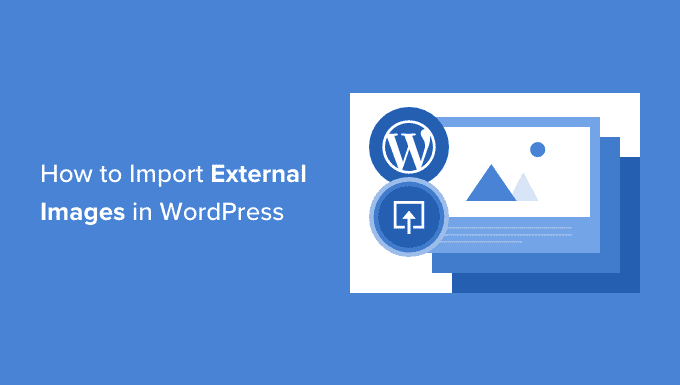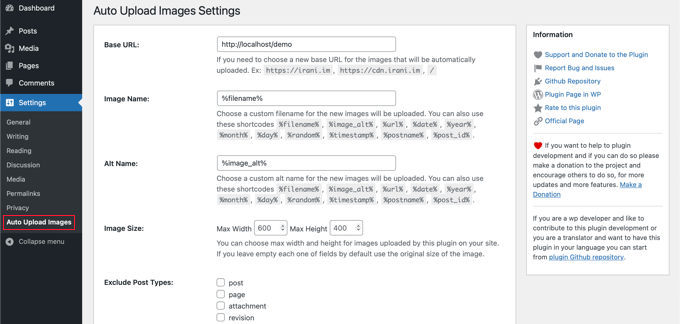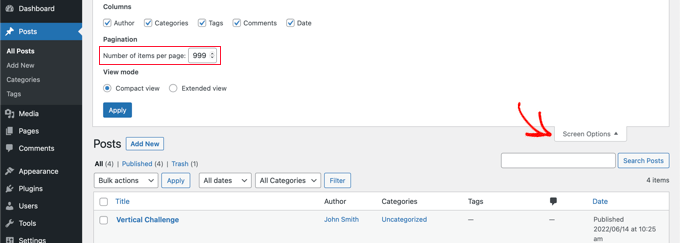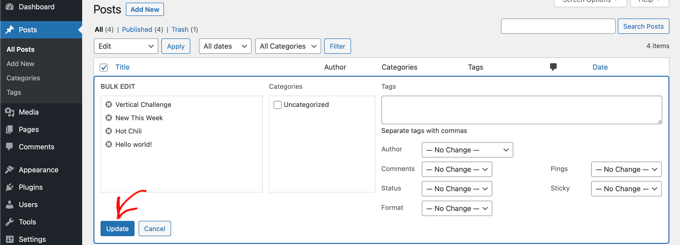Do you want to import external images in WordPress?
If you have recently moved your website from one platform or host to another, then there is a good chance that you may have external images embedded on your pages.
In this article, we will explain how to properly import those external images in WordPress.
Why Import External Images in WordPress?
External images are images embedded in your content that load from another website or URL different from your main WordPress website.
Most commonly, WordPress users come across external images issue after migrating their website from other platforms like Blogger, Weebly, Joomla, or WordPress.com.
By default, if you use one of the WordPress importers, then it will try to import images. You can see the imported images by visiting Media » Library page in your WordPress admin area.
If you see that all your images are already in the Media Library, but the image URLs in your posts still point to your old website, then you don’t need this article. Instead, you should follow our guide on how to easily update URLs when moving your WordPress site.
However, if you don’t see images imported to your WordPress media library, then continue reading and we will show you how to import those external images.
How to Import External Images in WordPress
The first thing you need to do is to install and activate the Auto Upload Images plugin. For more details, see our step by step guide on how to install a WordPress plugin.
Upon activation, you need to visit the Settings » Auto Upload Images page to review the plugin settings.
The default settings would work for most users, but you can change them as needed.
For example, the plugin will import images to your default WordPress media uploads folder. You can change that by providing a different base URL. Other than that, it also allows you to set filename, image alt tag, image size, and exclude post types.
If you do make some changes, then don’t forget to click on the ‘Save Changes’ button at the bottom of the page to store the new settings.
Next, you will need to update the posts or pages containing the external images. Since this is a manual process, it can be tedious if you have a lot of content.
Luckily, there’s a quick way to update all posts with external images. Simply go to Posts » All Posts page and then click on the Screen Options button at the top.
You need to increase the number in the ‘Number of items per page field’ field to ‘999’ and click the ‘Apply’ button.
WordPress will reload the page, and this time it will show up to 999 posts at a time.
Note: If you have slow web hosting, your server may not be able to handle updating so many posts at once. In that case, you would want to do smaller batches of posts at a time, or consider switching to better WordPress hosting.
Next, you can select all of your posts on this page by clicking the checkbox next to ‘Title’. After that, you should select ‘Edit’ under the bulk actions menu and click the ‘Apply’ button.
WordPress will now show you a ‘Bulk Edit’ box with all selected posts.
You just need to click on the ‘Update’ button, and WordPress will update all your posts.
Remember, don’t change any of the settings in the bulk edit settings that you see. You just need to click the ‘Update’ button.
This will trigger the plugin to check all selected posts and import external images as it finds them.
If you have more than 999 posts, then you will need to visit the next page to select the remaining posts.
We hope this tutorial helped you learn how to import external images in WordPress. You may also want to learn how to create a custom Instagram photo feed, or check out our list of must have plugins to grow your site.
If you liked this article, then please subscribe to our YouTube Channel for WordPress video tutorials. You can also find us on Twitter and Facebook.





